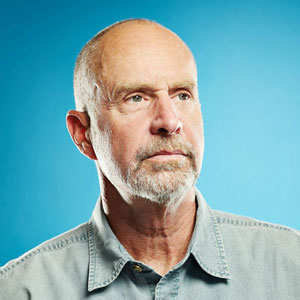Always Finding Your Way Out
What is it like to be a gay man living, traveling, training, racing, at the leading edge of triathlon? Here is Brandon Del Campo's story, in his own words.
Slowtwitch: Welcome Brandon. I've been looking forward to this for quite awhile, and it is only fair that I tell you why I'm picking on you. You're the most accomplished, transparent, well spoken, fearless gay triathlete I know.
Brandon Del Campo: Very nice of you to say that. When I was racing, trying to get to the highest level I could, I never talked about being gay. I had a feeling of not wanting to say I'm a gay triathlete. I wanted to win an Ironman. I wanted to achieve something great. I never went down that path because there was too much pressure to achieve results without adding to it by saying I'm a gay pro triathlete. I didn't want to be criticized for it. Now is a good time to talk about that journey.
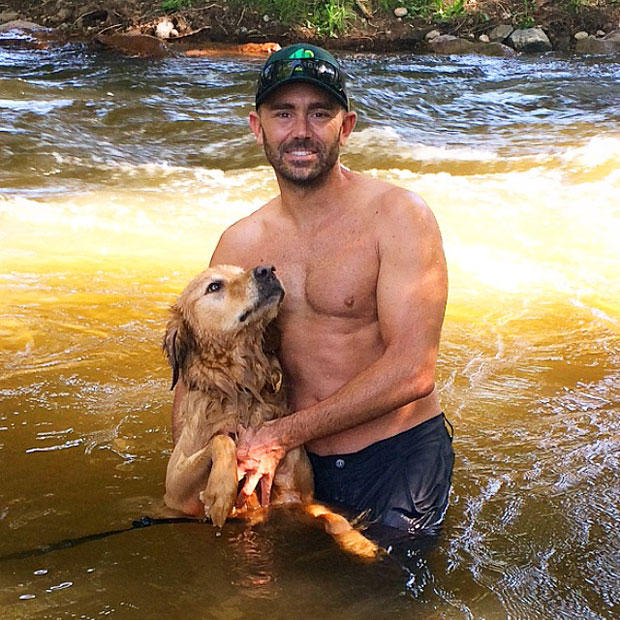
ST: You were a runner, and not just on the track team, you ran 9:06 for 3200 meters in high school, stud cross-country runner, certainly way inside the top 1 percent.
Brandon: I started running when I was 8. My parents were runners, marathoners, they started letting my run 5ks. I did quite well, they put me on a youth cross country team, I had early talent, in high school I really started running, and ours was one of the great teams, through 5 runners, in the history of high school cross country running. It elevated my running, but it created a lot of pressure. It made us all very fast.
ST: You went to UCLA, big time school, big time program, that's enough stress without the added weight of being gay and wondering how you're going to be yourself, express yourself, live your life, yet also be accepted in an atmosphere that is quick to reject what it doesn't like.
Brandon: I knew I was gay since I was 4 or 5. I can't explain how I knew it, I just knew it. I suffered from depression and anxiety when I was younger but in high school the running took over and I suppressed being gay. The running made everything go away. My senior year, I went to cross country Worlds trials after a very good, but very long season. I was fatigued. When the running performances declined all the problems of being gay started to surface.
I remember going to UCLA thinking I was going to start over. I didn't really know what that meant. I thought everything might fall into place but it really didn't. I ran well as a freshman. I was around other team members and did what freshmen do. I went to parties a lot. I remember really pretending to be straight for awhile. If you talked now to some of my team members, they'd say it was very bizarre some of the things I would say back then.
The only way to explain the process, I was going through depression. High levels of depression. Meb and I were on the team together. I could give Meb a run for his money in high school, but in college he was accelerating, I was decelerating. That was very depressing. I didn't know who to talk to. Didn't know how to come to terms with it. My sophomore year, the depression was so bad, I didn't want to be with anyone. The brain gets depressed enough, you lose your grip on reality. I tried to kill myself.
I remember a paramedic asked me if I did this because my girlfriend broke up with me. Which just poured gas on the fire. A couple of days later, talking to a nurse, the only answer I could come up with was that I was gay. I remember her face, the expression said, “Damn, that's really a shame, it's not the first time I've heard that answer.”
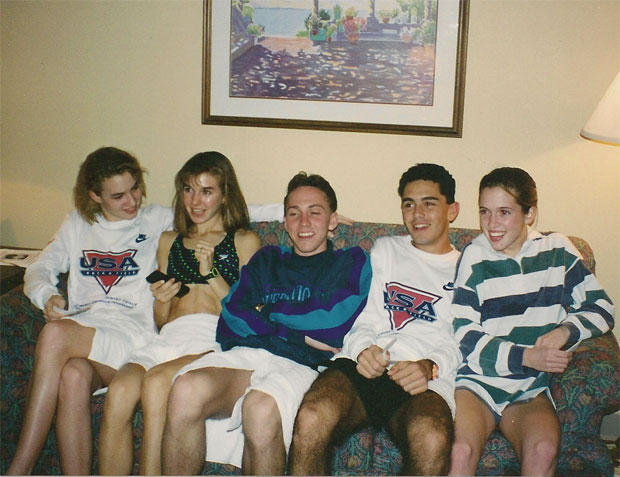
So, another level of shame got thrown on there. When you're growing up gay, it's such a big deal. It's always in your face. The politics of it all. The religious people. As a person growing, maturing, it's going to affect you. Maybe not everybody, but it affected me, and so many young gay people commit suicide. I became, or almost became, a statistic.
I should mention, the suicide [attempt] happened three months after I came out. I came out to my friends, those on the team, Bob Larson, my coach at the time, my parents. The biggest negative reaction was in my own head. My feeling was of not fitting in, with anybody. Not with my straight male friends, because there's this “thing.” Not gay people, because I'm not in their circle as much. Gay guys love women, right? But not me. That can be challenging.
My problem became everyone else's problem too. Everyone around me was sensitive to anything gay. Life was easier in the closet.
ST: How did you find your way out? Or how are you finding your way out?
Brandon: About being gay, you're always finding your way out. I'm still finding my way out. It is still awkward for me to deal with someone new who doesn't know I'm gay. I suffered from depression and anxiety since I was a kid. I might have been prone to depression if I wasn't gay. Trying to find my way out was always falling back on the running, but running wasn't always going to be there. I can't ride a bike anymore and running is on the fritz due to a chronic injury. That scares me.
After my last [running] season [in college] I thought, now I can focus on something else. I can focus on graduating. Which I did. I started doing other things, which meant getting out of shape. I went through a drug and drinking phase.
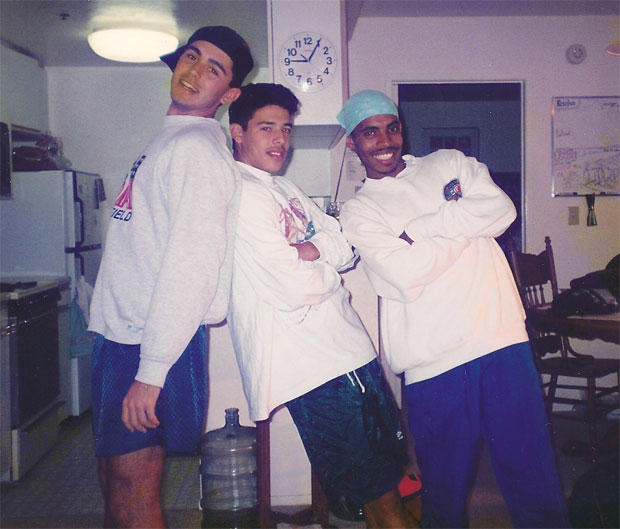
I had gotten into spinning. Had never heard of triathlon. Saw an ad for a triathlon, my spin instructor, she became a very good friend of mine, signed me up for triathlon, lent me her bike. I did the L.A. Tri, did very well as an amateur.
It was fun. It helped me get through a dark patch after running. I found out about Ironman, I'd just learned how to swim, swimming was less relevant in longer races, I started training. How am I finding my way out? Endurance sports always leads me to my true self. I think figuring out who your true self is.
ST: Let's talk about triathlon. What do gay people, or gay men if you can only speak for them, fear when trying to fit into this sport, and knowing now what you know, are those fears justified?
Brandon: For a gay man there are always fears. Are there are any justified fears? Fewer these days. I took a bunch of my own fears with me, and had them all shot down. When I decided to go to New Zealand – I lived down there for three half-year cycles – I was going to live with Clas Bjorling, Jonas Colting, Bella Comerford who is now Bayliss, and her husband Steven, Bjorn Andersson, Kristy Gough who was killed in California by a car while on her bike, Gordo and Monica Byrn, Scott Molina. I didn't know what they knew.
One thing that makes it difficult, how do you bring it up? Hi, I'm Brandon, I'm gay. It's not the first thing you should know about me, but it's an important part of me, just as being straight is important. If you're straight, it gets announced, your wedding ring, things that come up. It was intimidating and felt like I was closeted again.
My first contact when I got there was Scott [Molina], I told him I'm not a good swimmer, okay biker, done one half-Ironman, he said yeah, come on down. The answer is, nobody really cared. Not that they didn't care; there wasn't anything negative about it.
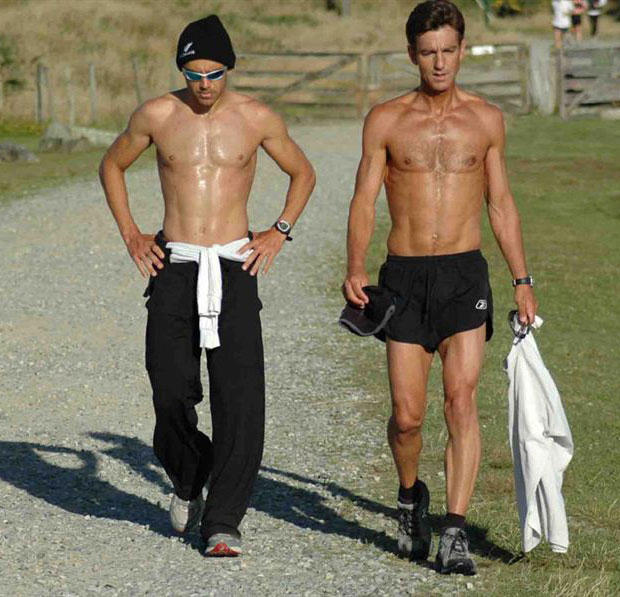
Kristy knew already thanks to Google. Gordo and Monica figured it out. Still, he invited me to come to Hawaii, stay with him and Monica for a month, then they invited me to live with them in Boulder.
You just have to be comfortable in your own skin. There's always going to be an asshole. Or there's going to be someone who doesn't understand at the level you want them to. There were some challenging conversations, it's not on their radar, they're going off of what they know.
ST: I was joking with Branden Naef, a pro triathlete from Eastern Canada, gay triathletes don't roll into transition and put up a pop-up tent announcing I'm gay. Do you think gay triathletes are in triathlon in the same relative percentage that exist in all communities, or are gay participants over- or under-represented?
Brandon: Great question. And, uh, some do set up a pop-up tent. I've gone to the Gay Games, won the triathlon there. Met other amateur triathletes, dated a pro triathlete. He was closeted at the time.
My friends, we do make fun. “It's so gay,” is a term, very negative. But it turns out triathlon's pretty gay. We laugh about people who claim they're straight but do some pretty gay things.
But jokes aside, I do have a theory about endurance sport. It's very time consuming. A great distraction from life. If you're going to be in the closet, triathlon's the perfect place for you. You can just focus on that. Sometimes I wonder if I used triathlon to avoid my own life as I did in the past with running. I am forced to live in the real world now, and I find that challenging at times.
There's also people who're out, they don't think much of it. Professional field? I had a pro card, there are a few others [who are not out], but it's not my place to talk about it.
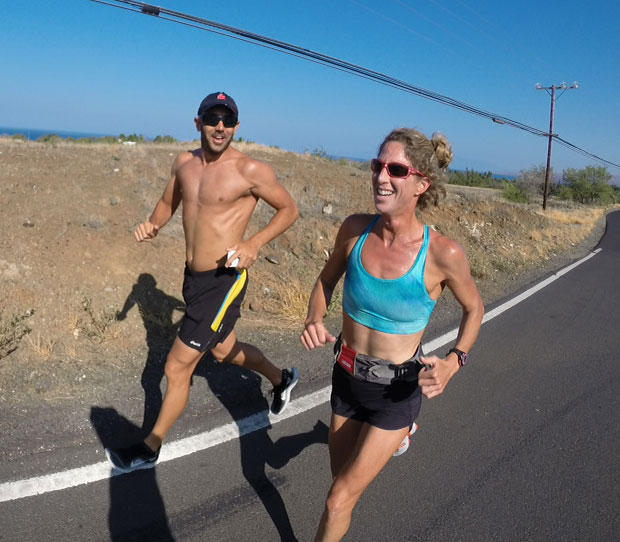
ST: What do straight triathletes need to do to make sure gay athletes not only feel comfortable in triathlon, but being out while being in triathlon?
Brandon: I don't think there's anything they need to do. It's a much broader question about just what people in general need to do. Nobody [gays in triathlon] is looking for anything special. Equality. Just, there's going to be a discovery process, for everybody, gay and straight. Somebody might refer to his boyfriend. Okay, now you know. Or maybe he's flamboyant, so you immediately know. The best thing to do is just be accepting. Triathlon is very good at accepting people.
Once after the Hawaiian Ironman, maybe 2008, I finished, showered, was out on the course, watching the race, saw a woman running toward me, I was just encouraging anyone who came by, I turned around, on the back of her shirt was Focus on the Family. They are a religious group, very negative when it comes to gay issues, it just struck something in me. I hear a lot about gay people sticking it in other peoples' faces. I don't think that's really true. When I saw that, I just kind of screamed out, “Focus on your own goddam family!”
ST: [Laughter]
Brandon: I was pissed!
ST: Is there something we, here on Slowtwitch, could or should or might do to make the sport more accessible, safer, more peaceful, more inclusive, for a gay man or woman who might want to become part of our Slowtwitch community?
Brandon: You're doing that right now by having a conversation with me. Just having these conversations; having people hear what they're not familiar with; I think you're doing that right now.
That's where it all starts. I truly thank you for doing this and hope it sheds some light on an issue that probably shouldn't even be one!
Oh, one more thing….What do gay cows eat? “HAAAAAAAAAAAAY!!!!”
Images, in order from top down:
– Brandon and Riley
– USA World Trials with Carrie Tollefson, Julia Stamps, Adam Goucher, Brandon Del Camp, and unknown.
– Three UCLA freshmen: Brandon Del Campo, Devin Elizando, Meb Keflezighi
– Brandon Del Campo, Scott Molina
– Brandon Del Campo and Joanna Zeiger, each part of Race Ready Coaching.



